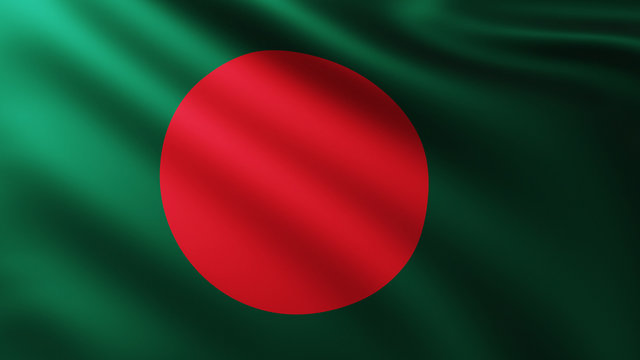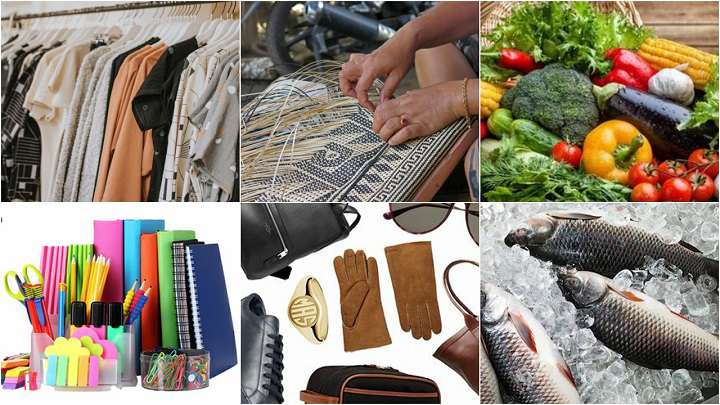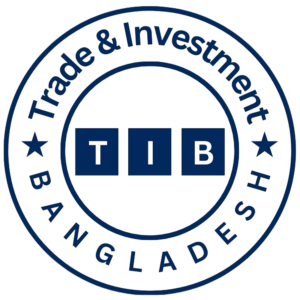
Exploring Business Opportunities between Bangladesh and Brazil
Exploring Business Opportunities between Bangladesh and Brazil
Md. Joynal Abdin*
Business Consultant & Digital Marketer
Founder & CEO of Trade & Investment Bangladesh
Introduction:
In today’s interconnected global economy, the search for new business frontiers knows no bounds. As nations seek to diversify their trade portfolios and capitalize on emerging markets, the symbiotic potential between regions often goes untapped. One such promising nexus lies in the exploration of business opportunities between Bangladesh and Brazil.
Both countries, situated on opposite sides of the globe, possess unique economic landscapes characterized by burgeoning industries, dynamic labor forces, and a drive for innovation. Bangladesh, renowned for its prowess in textiles, agriculture, and pharmaceuticals, stands as a beacon of economic resilience and rapid development in South Asia. Meanwhile, Brazil, with its vast natural resources, robust manufacturing sector, and technological advancements, commands a formidable presence as one of Latin America’s largest economies.
The convergence of Bangladesh and Brazil presents a compelling narrative of collaboration and growth. Despite the geographical distance, the shared aspirations for economic prosperity and sustainable development serve as powerful catalysts for forging stronger ties. By delving into the current economic climates of both nations, we uncover a wealth of opportunities ripe for exploration and exploitation. From trade liberalization initiatives to strategic investment ventures, the potential benefits of cross-border collaboration are manifold.
In this blog post, we embark on a journey to unravel the intricacies of business opportunities between Bangladesh and Brazil. We delve into the economic dynamics shaping these nations, examine key industries poised for collaboration, and chart a course towards mutual prosperity. Join us as we navigate through the corridors of commerce, guided by the vision of a brighter future forged through partnership and innovation.
Understanding the Economies:

Bangladesh: A country of significant economic transformation in recent decades, boasts a diverse industrial landscape. Textiles and garments remain its flagship industry, contributing substantially to export revenues and providing employment to millions. Additionally, the agricultural sector plays a vital role in the economy, with Bangladesh being one of the world’s largest producers of rice. In recent years, the country has also made strides in the pharmaceutical and IT sectors, capitalizing on its skilled workforce and competitive advantages.
In terms of economic performance, Bangladesh has demonstrated impressive resilience, with GDP growth rates consistently exceeding 6% in recent years. Moreover, its strategic geographic location and favorable investment climate have attracted significant foreign direct investment (FDI), particularly in sectors such as manufacturing and infrastructure development.

Brazil, on the other hand, boasts a vast and diversified economy, fueled by abundant natural resources and a robust industrial base. Agriculture plays a central role in Brazil’s economy, with the country being a leading exporter of commodities such as soybeans, coffee, and beef. Furthermore, Brazil has a strong manufacturing sector, particularly in automotive, aerospace, and machinery production. The country is also a global leader in renewable energy, with significant investments in hydropower, wind, and biofuels.
Despite facing economic challenges in recent years, including recession and political instability, Brazil has shown signs of recovery, with GDP growth rates rebounding and structural reforms underway to enhance competitiveness and attract investment.
In terms of trade patterns, both Bangladesh and Brazil have diverse export profiles, offering a range of products and services for international markets. While Bangladesh’s exports are primarily dominated by textiles and garments, Brazil exports a mix of agricultural commodities, manufactured goods, and raw materials. This diversity presents opportunities for complementary trade relationships and value chain integration between the two countries.
While Bangladesh and Brazil differ in terms of economic structure and development priorities, they share common goals of economic growth, job creation, and poverty alleviation. Moreover, both nations face similar challenges such as infrastructure gaps, skill shortages, and environmental sustainability concerns. These similarities provide a fertile ground for collaboration and knowledge exchange, where each country can leverage its strengths to address shared challenges and pursue mutual prosperity.
As businesses explore opportunities for collaboration between Bangladesh and Brazil, understanding these similarities and differences is crucial for devising effective strategies and unlocking the full potential of this burgeoning partnership. Whether it’s leveraging Bangladesh’s expertise in textiles and Brazil’s agribusiness prowess or tapping into Brazil’s technological advancements and Bangladesh’s entrepreneurial spirit, the possibilities for collaboration are vast and promising.
Key Industries for Collaboration:
Key Industries for Collaboration between Bangladesh and Brazil:
- Agriculture: Both Bangladesh and Brazil have significant agricultural sectors, albeit with different focuses. Brazil is a global powerhouse in agribusiness, known for its large-scale production of soybeans, sugarcane, coffee, and beef. Bangladesh, on the other hand, is renowned for rice production and fisheries. Collaboration in agriculture could involve knowledge exchange, technology transfer, and joint research initiatives to improve productivity, enhance food security, and explore new markets.
- Textiles and Garments: Bangladesh is one of the world’s largest exporters of textiles and garments, while Brazil has a burgeoning textile industry. Collaboration in this sector could involve vertical integration, where Brazilian textile manufacturers provide raw materials to Bangladeshi garment factories, taking advantage of Bangladesh’s expertise in garment manufacturing and Brazil’s cotton production capabilities. Joint ventures could also explore sustainable practices and innovative technologies to improve efficiency and reduce environmental impact.
- Technology: Both Bangladesh and Brazil have made strides in the technology sector, with growing IT industries and a burgeoning startup ecosystem. Collaboration in technology could involve partnerships between Brazilian and Bangladeshi tech companies to develop innovative solutions for common challenges in areas such as e-commerce, fintech, healthcare, and education. Joint ventures could also facilitate technology transfer and skill development through exchange programs and collaborative research projects.
- Renewable Energy: Brazil is a global leader in renewable energy, particularly in hydropower and biofuels, while Bangladesh has been investing in renewable energy sources such as solar and wind power to meet its growing energy demands sustainably. Collaboration in renewable energy could involve sharing best practices, technology transfer, and joint investment in renewable energy projects. Partnerships could focus on developing solar and wind farms, promoting energy efficiency, and implementing smart grid solutions to enhance energy security and mitigate climate change.
- Infrastructure Development: Both Bangladesh and Brazil face infrastructure challenges, including transportation, logistics, and urban development. Collaboration in infrastructure development could involve joint ventures or public-private partnerships to finance and execute large-scale infrastructure projects such as roads, bridges, ports, and urban infrastructure. Brazilian expertise in construction and engineering combined with Bangladeshi market knowledge and investment opportunities could create significant synergies and opportunities for collaboration.
In summary, collaboration between Bangladesh and Brazil in key industries such as agriculture, textiles, technology, renewable energy, and infrastructure development holds immense potential for mutual benefit. By leveraging each other’s strengths, resources, and expertise, both countries can drive innovation, create jobs, and foster sustainable economic growth. Joint ventures, partnerships, and knowledge exchange initiatives are essential for unlocking the full potential of this dynamic collaboration and shaping a brighter future for both nations.
Products Bangladesh Can Export to Brazil:
- Textiles and Garments: Bangladesh is renowned globally for its textile and garment industry, offering a wide range of products including knitwear, woven garments, and textiles. These products are in high demand worldwide and can cater to Brazil’s fashion and apparel market.
- Jute and Jute Goods: Bangladesh is the world’s largest producer of jute fiber and jute goods. Jute products such as sacks, bags, carpets, and textiles have various industrial and commercial applications. Brazil could import these eco-friendly products for packaging, construction, and home decor purposes.
- Pharmaceuticals: Bangladesh has a growing pharmaceutical industry known for producing high-quality generic drugs at competitive prices. Brazil could benefit from importing pharmaceutical products such as medicines, vaccines, and healthcare supplies from Bangladesh.
- Ceramic Tiles: Bangladesh has a thriving ceramic industry, producing a variety of ceramic tiles for flooring and wall applications. Brazilian construction and interior design sectors could import these ceramic tiles to meet the demand for modern and durable building materials.
- Leather and Leather Goods: Bangladesh produces a wide range of leather products including footwear, bags, and accessories. Brazilian consumers have a growing interest in fashionable leather goods, making Bangladesh an attractive source for importing quality leather products.
- Frozen Seafood: Bangladesh has a rich marine resource base and a growing seafood processing industry. Frozen seafood products such as shrimp, fish, and crab are popular in international markets and could find a niche in Brazil’s seafood market.
- IT and Software Services: Bangladesh’s IT industry has been experiencing rapid growth, offering a range of software development, IT outsourcing, and digital services. Brazilian businesses could benefit from outsourcing IT projects to Bangladeshi companies for cost-effective solutions and expertise in software development.
- Home Textiles: Bangladesh is a leading exporter of home textile products such as towels, bed linens, and curtains. These high-quality and affordable textile products could cater to Brazil’s home furnishing and hospitality sectors.
- Ceramic Tableware: Bangladesh produces ceramic tableware items such as dinnerware, plates, and bowls. Brazilian consumers have a growing interest in stylish and functional tableware products, presenting an opportunity for Bangladesh to export its ceramic products to Brazil.
- Agro-processed Foods: Bangladesh produces a variety of agro-processed foods such as snacks, spices, and packaged foods. These value-added food products could appeal to Brazilian consumers looking for convenient and flavorful food options.

Products Brazil Can Export to Bangladesh:
- Soybeans and Soy Products: Brazil is one of the world’s largest producers and exporters of soybeans and soy products such as soybean oil and soybean meal. These products are essential for Bangladesh’s livestock feed industry and edible oil refining sector.
- Coffee: Brazil is renowned for its high-quality coffee beans, accounting for a significant share of the global coffee market. Bangladesh could import Brazilian coffee beans to meet the growing demand for coffee consumption in the country.
- Aircraft and Aerospace Products: Brazil has a strong aerospace industry, producing aircraft, helicopters, and aerospace components. Bangladesh could import Brazilian aircraft and aerospace products to modernize its aviation sector and expand its fleet.
- Sugar: Brazil is a major producer and exporter of sugar, supplying a significant portion of the world’s sugar demand. Bangladesh could import Brazilian sugar to meet its domestic sugar consumption needs and support its food processing industry.
- Meat and Poultry: Brazil is a leading exporter of meat and poultry products, including beef, chicken, and pork. Bangladesh could import Brazilian meat and poultry products to meet the protein requirements of its growing population and support its food processing industry.
- Ethanol: Brazil is a global leader in ethanol production, primarily derived from sugarcane. Bangladesh could import Brazilian ethanol as a renewable fuel source to reduce dependence on fossil fuels and promote environmental sustainability.
- Mining and Mineral Products: Brazil has abundant mineral resources, including iron ore, bauxite, and gold. Bangladesh could import Brazilian mining and mineral products for industrial use, infrastructure development, and manufacturing purposes.
- Footwear: Brazil produces a wide range of footwear products, including leather shoes, sandals, and sneakers. Bangladeshi consumers have a growing interest in fashionable and durable footwear, making Brazil an attractive source for importing footwear products.
- Machinery and Equipment: Brazil manufactures a variety of machinery and equipment for industrial, agricultural, and construction purposes. Bangladesh could import Brazilian machinery and equipment to modernize its manufacturing sector and improve productivity.
- Chemicals and Petrochemicals: Brazil produces a range of chemicals and petrochemicals used in various industries such as agriculture, manufacturing, and pharmaceuticals. Bangladesh could import Brazilian chemicals and petrochemicals for industrial processes, production of consumer goods, and infrastructure development.

Addressing Barriers to Entry:
Entering the Bangladeshi or Brazilian market can be a rewarding endeavor, but businesses often encounter a range of challenges and obstacles that must be navigated effectively. Some of the key challenges include regulatory hurdles, cultural differences, logistical challenges, and language barriers.
A. Regulatory Hurdles: Both Bangladesh and Brazil have regulatory frameworks that businesses must comply with to operate legally. Navigating complex regulatory processes, obtaining permits, licenses, and approvals can be time-consuming and costly.
Strategy: Businesses should conduct thorough research to understand the regulatory environment of the target market. Seeking assistance from local legal experts or consulting firms can help navigate regulatory requirements effectively. Building relationships with government agencies and industry associations can also facilitate smoother compliance processes.
B. Cultural Differences: Cultural nuances play a significant role in business interactions in Bangladesh and Brazil. Understanding cultural norms, values, and communication styles is crucial for building trust and establishing successful partnerships.
Strategy: Businesses should invest in cross-cultural training for their staff and develop cultural intelligence to navigate cultural differences effectively. Building relationships based on mutual respect, patience, and understanding can help bridge cultural gaps and foster smoother business interactions.
C. Logistical Challenges: Logistics infrastructure in both Bangladesh and Brazil may pose challenges such as inadequate transportation networks, port congestion, and customs delays. These challenges can impact supply chain efficiency and increase operational costs.
Strategy: Businesses should conduct thorough logistics assessments and identify potential bottlenecks in the supply chain. Investing in robust logistics solutions, such as reliable transportation providers and warehousing facilities, can mitigate logistical challenges. Developing contingency plans and building flexibility into supply chain operations can also help manage unforeseen disruptions effectively.
D. Language Barriers: Language differences can create communication barriers between businesses and local stakeholders in Bangladesh and Brazil. Limited proficiency in English may pose challenges for some stakeholders, particularly in Bangladesh.
Strategy: Businesses should invest in language training for their staff or hire bilingual professionals who can facilitate communication with local stakeholders. Utilizing translation services or hiring local interpreters can help bridge language gaps during business negotiations and interactions. Additionally, leveraging digital communication tools such as video conferencing and email can facilitate effective communication across language barriers.
Case Study 1: BRAC and Banco do Brasil Partnership
Background: BRAC, a leading Bangladeshi non-profit organization, partnered with Banco do Brasil, one of Brazil’s largest banks, to promote financial inclusion and entrepreneurship in both countries.
Joint Venture Details: The partnership involved knowledge exchange and capacity-building initiatives to empower marginalized communities in Bangladesh and Brazil. BRAC provided training programs on microfinance, small business development, and women’s empowerment, leveraging its expertise in community-based interventions. Banco do Brasil facilitated access to financial services, including microcredit and savings accounts, to underserved populations in Brazil.
Results: The partnership resulted in significant socio-economic impact, with thousands of individuals in Bangladesh and Brazil gaining access to financial services and entrepreneurial opportunities. Microcredit programs supported by Banco do Brasil helped Brazilian entrepreneurs start or expand small businesses, creating jobs and stimulating local economies. Similarly, BRAC’s microfinance initiatives empowered women in Bangladesh to become financially independent and invest in education, healthcare, and livelihoods for their families.
Key Takeaways: The BRAC-Banco do Brasil partnership demonstrates the transformative potential of cross-border collaborations in promoting financial inclusion and poverty alleviation. By combining local knowledge, resources, and networks, organizations can create sustainable solutions to address socio-economic challenges and improve livelihoods in diverse communities.
Case Study 2: H&M and Brazilian Textile Manufacturers
Background: H&M, a global fashion retailer, partnered with Brazilian textile manufacturers to diversify its supply chain and promote sustainable sourcing practices.
Strategic Partnership Details: H&M collaborated with Brazilian textile manufacturers to source organic cotton and eco-friendly fabrics for its apparel production. The partnership focused on promoting sustainable farming practices, reducing environmental impact, and ensuring fair labor standards throughout the supply chain. Brazilian textile manufacturers invested in sustainable production technologies and certification processes to meet H&M’s ethical sourcing requirements.
Results: The partnership enabled H&M to expand its sustainable product offerings and strengthen its commitment to corporate social responsibility. Brazilian textile manufacturers benefited from access to new markets and increased demand for eco-friendly fabrics, driving innovation and investment in sustainable production practices. The collaboration also contributed to job creation and economic development in Brazil’s textile industry, fostering inclusive growth and environmental stewardship.
Key Takeaways: The H&M-Brazilian textile manufacturers partnership exemplifies how strategic collaborations can drive positive change in global supply chains. By aligning business interests with sustainability goals, companies can create value for both shareholders and society, fostering long-term competitiveness and resilience in the fashion industry.
Case Study 3: Successful Trade in Sugar between Bangladesh and Brazil
Background: Bangladesh, a country with a high demand for sugar, has been importing significant quantities of sugar to meet domestic consumption needs. Brazil, one of the world’s largest producers and exporters of sugar, has been a key supplier to Bangladesh.
Trade Details: In recent years, Bangladesh has increasingly relied on Brazilian sugar imports to address domestic supply shortages and stabilize prices in the local market. Brazil’s efficient sugar production and export infrastructure have allowed it to meet Bangladesh’s demand for high-quality sugar at competitive prices. Moreover, Bangladesh benefits from Brazil’s geographical proximity, which reduces shipping costs and transit times.
Results: The trade in sugar between Bangladesh and Brazil has been mutually beneficial. Bangladesh ensures a steady supply of sugar to meet domestic consumption needs, thereby stabilizing prices and mitigating inflationary pressures. On the other hand, Brazil gains access to a lucrative market for its sugar exports, contributing to the growth of its sugar industry and supporting rural livelihoods.
Key Takeaways: The successful trade in sugar between Bangladesh and Brazil underscores the importance of international trade in addressing supply-demand imbalances and promoting food security. By leveraging comparative advantages and engaging in mutually beneficial trade relationships, countries can optimize resource allocation, enhance economic efficiency, and meet consumer needs effectively.
Case Study 4: Successful Trade in Soybean Oil between Bangladesh and Brazil
Background: Bangladesh, a major importer of edible oils, relies heavily on imports to meet domestic demand for cooking oil. Brazil, one of the world’s leading producers and exporters of soybean oil, has emerged as a key supplier to Bangladesh’s edible oil market.
Trade Details: Brazil’s competitive advantage in soybean cultivation and processing has positioned it as a reliable supplier of soybean oil to Bangladesh. The two countries have established trade agreements and partnerships to facilitate the importation of soybean oil from Brazil to Bangladesh. Bangladesh benefits from Brazil’s high-quality soybean oil, which is used extensively in cooking, food processing, and manufacturing industries.
Results: The trade in soybean oil between Bangladesh and Brazil has contributed to ensuring a stable supply of edible oils in the Bangladeshi market. Brazil’s efficient production and export infrastructure have enabled Bangladesh to access competitively priced soybean oil, reducing dependency on more expensive imports from other regions. Moreover, Brazil’s commitment to sustainable soybean farming practices aligns with Bangladesh’s priorities for food safety and environmental sustainability.
Key Takeaways: The successful trade in soybean oil between Bangladesh and Brazil exemplifies the importance of international trade in meeting consumer needs, supporting economic development, and fostering sustainable agriculture. By harnessing synergies between production and consumption regions, countries can optimize trade relationships and create value for both producers and consumers.
These case studies highlight the potential of collaboration between businesses from Bangladesh and Brazil to achieve shared objectives, drive innovation, and create meaningful impact. By leveraging each other’s strengths, resources, and expertise, companies can unlock new opportunities for growth, sustainability, and social development in diverse markets.
Opportunities on the Horizon:
As we look to the future, the prospects for business relations between Bangladesh and Brazil are promising, marked by opportunities for growth, innovation, and collaboration. Emerging trends and evolving dynamics present avenues for deeper engagement and mutually beneficial partnerships that can unlock the full potential of this dynamic relationship.
One key trend that is likely to shape the future of business relations between Bangladesh and Brazil is the increasing emphasis on sustainable development and responsible business practices. Both countries are increasingly prioritizing environmental sustainability, social responsibility, and ethical business conduct. By aligning their efforts and collaborating on sustainability initiatives, businesses can address common challenges such as climate change, resource depletion, and social inequality while creating shared value for stakeholders.
Another trend that holds significant potential for business relations between Bangladesh and Brazil is the digital transformation of industries and economies. The rise of digital technologies, e-commerce platforms, and digital payment systems presents new opportunities for trade, investment, and innovation. By leveraging digital platforms and technologies, businesses can overcome traditional barriers to entry, expand market reach, and drive efficiency gains in supply chains and business operations.
In terms of potential areas for growth, sectors such as agriculture, renewable energy, information technology, and infrastructure development offer fertile ground for collaboration and investment. Bangladesh’s expertise in agriculture and Brazil’s agribusiness capabilities can synergize to address global food security challenges and promote sustainable farming practices. Similarly, Bangladesh’s burgeoning IT industry can benefit from Brazil’s technological advancements and innovation ecosystem, fostering cross-border partnerships and knowledge exchange.
To foster stronger ties and realize the full potential of this partnership, continued dialogue, cooperation, and innovation are paramount. Governments, businesses, and civil society actors from both countries must collaborate closely to identify common interests, address shared challenges, and seize opportunities for growth. By fostering an enabling environment for trade and investment, reducing trade barriers, and promoting regulatory coherence, policymakers can facilitate smoother business interactions and create conducive conditions for sustainable economic development.
Moreover, investing in people-to-people exchanges, cultural diplomacy, and educational initiatives can strengthen the bonds of friendship and understanding between Bangladesh and Brazil. By nurturing a sense of shared identity and common purpose, businesses can build trust, forge lasting partnerships, and navigate cultural differences more effectively.
In conclusion, the future of business relations between Bangladesh and Brazil holds immense promise, driven by emerging trends, evolving dynamics, and shared aspirations for prosperity and sustainability. By embracing innovation, collaboration, and dialogue, businesses can harness the full potential of this dynamic partnership and create a brighter future for both nations and their people.
How can Trade & Investment Bangladesh Assist?

Trade & Investment Bangladesh (TIB) plays a pivotal role in facilitating trade and investment cooperation between businesses in Bangladesh and businesses in Brazil through a range of strategic initiatives and support services. By leveraging its expertise and networks, TIB can assist businesses in both countries in establishing fruitful partnerships and unlocking new opportunities for growth and collaboration. Here’s how TIB can utilize various tools and approaches to foster trade and investment cooperation:
- Business Mentorship: TIB can provide business mentorship programs tailored to the specific needs and challenges of Bangladeshi and Brazilian businesses looking to expand into each other’s markets. Experienced mentors can offer guidance on market entry strategies, regulatory compliance, cultural considerations, and business development best practices. Mentorship programs can empower businesses with the knowledge, skills, and confidence to navigate unfamiliar markets and build successful partnerships.
- Product Positioning: TIB can assist businesses in positioning their products effectively in the Bangladeshi and Brazilian markets to maximize market penetration and competitiveness. Through market research, consumer insights, and strategic analysis, TIB can help businesses identify unique selling propositions, target customer segments, and tailor product offerings to meet local preferences and demands. Effective product positioning can enhance brand visibility, differentiation, and appeal, driving sales and market share growth.
- Buyers-Sellers Matchmaking: TIB can facilitate matchmaking events and trade missions that bring together buyers and sellers from Bangladesh and Brazil to explore potential business opportunities and establish commercial partnerships. By organizing business matchmaking sessions, networking events, and trade fairs, TIB can create platforms for businesses to showcase their products, engage with potential partners, and negotiate trade agreements. These matchmaking initiatives can facilitate direct interactions, build trust, and catalyze business deals between Bangladeshi and Brazilian companies.
- Organizing Product Exhibitions: TIB can organize product exhibitions and trade shows in Bangladesh and Brazil to showcase the diverse range of products and services available from both countries. These exhibitions provide businesses with opportunities to demonstrate their capabilities, connect with prospective buyers and distributors, and generate leads for future collaborations. By facilitating face-to-face interactions and product demonstrations, TIB can stimulate interest, foster relationships, and drive business development efforts for participating companies.
- Development of Distribution Channels: TIB can support businesses in establishing and expanding distribution channels in Bangladesh and Brazil to reach wider audiences and increase market penetration. Through market assessments, partner identification, and logistical support, TIB can assist companies in identifying distribution partners, negotiating agreements, and optimizing supply chain operations. Developing robust distribution channels ensures efficient product delivery, enhances customer accessibility, and strengthens market presence for businesses entering new markets.
In summary, Trade & Investment Bangladesh (TIB) plays a crucial role in facilitating trade and investment cooperation between businesses in Bangladesh and businesses in Brazil through business mentorship, product positioning, buyers-sellers matchmaking, organizing product exhibitions, and development of distribution channels. By leveraging these tools and approaches, TIB can empower businesses to seize opportunities, overcome challenges, and forge successful partnerships that drive mutual growth and prosperity.
Exploring Business Opportunities between Bangladesh and Brazil

Mr. Md. Joynal Abdin is a Business Consultant & Digital Marketer based in Dhaka, Bangladesh. He is Founder & CEO, Trade & Investment Bangladesh; Secretary General of Brazil Bangladesh Chamber of Commerce & Industry (BBCCI) and Co-Founder & CEO of Bangladesh Trade Center. Previously he served at Dhaka Chamber of Commerce & Industry (DCCI) as Executive Secretary; DCCI Business Institute (DBI) as Executive Director; SME Foundation as Deputy Manager; and the Federation of Bangladesh Chambers of Commerce & Industry (FBCCI) as Assistant Secretary.
The list of services Mr. Abdin is offering includes but not limited to Business Mentorship, Business Research and Documentations, Export Market Selection and Product Positioning at Home and Abroad; Buyers-Sellers Matchmaking; Website Development; Search Engine Optimization (SEO); and Social Media Marketing etc.
Exploring Business Opportunities between Bangladesh and Brazil
